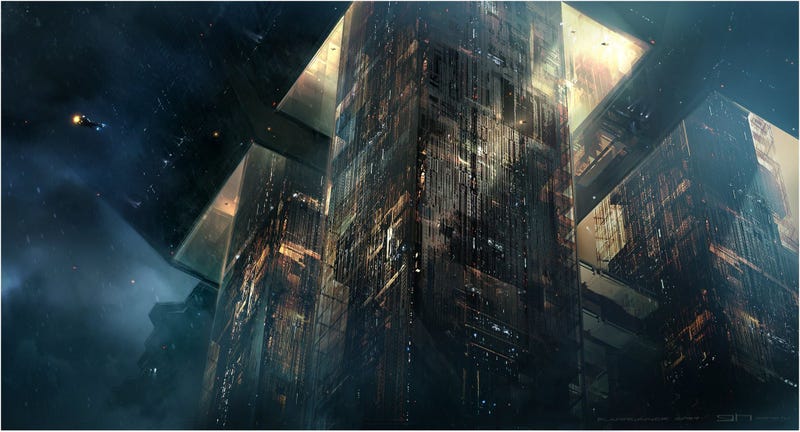I think Joi, on the other hand, is a weak character and could be cut without much loss. Her role seems to be to personify innocence and/or K's good side - in other words, she is entirely dependent upon him to function, which is a common feminist argument against a female character (she literally can't exist without him).
I didn't particularly like Joi as a character - in fact I would argue she barely is one - and I find it hard to include her into any meaningful discussion regarding the perceived misogyny of the film because she's not a woman but an AI, she is not a living being. She's Siri with an added holographic form. I'm sure some people in our day and age would argue that somebody screaming their head off at Siri for not finding the closest sushi restaurant is being abusive towards her as a woman, but to me the debate has absolutely nothing to do with her perceived sex. Can a human commit a crime against an AI? Is Joi aware and/or sentient at all or is she just following a program to the letter? If she is not living in any meaningful sense, then there can be no abuse towards her and of course she will always be confined to being a commodity, a thing. I don't think she loves K at all, I think she is just programmed to display all the perceived characteristics of a human companion who loves whoever happened to buy it.
In any case I am not arguing that she is meaningless, but her relevance can only be analysed from the point of view of her owner, because she only effectively exists for his intent and purpose and not hers, since she has none. Siri is no one. My relationship to the Siri that's on my phone is only ever my problem and not "hers", because she perceives no relationship at all in the first place.
I think the point of Joi was to show what a sad world the characters from the film live in, where companionship can only be found in artificiality (a hologram for the emotional side, bioengineered prostitutes for the physical side). Her final "I love you" to K before being destroyed seems just as empty as the holographic shell that gives her form. So while it is untrue to say that Joi is defined by her need of K to exist, because she is no more than an accessory / extension of Gosling's character (she has no "needs"), the opposite however seems true to me: It is actually K who relies on her to pretend he exists as a normal, living being and not just a drone of the powers that be.
But let's not forget that she actively helps K on his investigation when he himself has no idea as to where the clues point, and even saves his life by distracting Luv as she is just about to finish him.
My only regret is that the movie forgot to include commercial ads for the male version of Joi, which I am sure exists in that world, because this would have probably helped people realise that she is not there to tell us what the filmmakers think the ideal woman is, she is just a product tailored to the needs of a sad, dystopian society, an object meant to be owned, used and abused like any other piece of technology, and the fact that she looks like a woman is completely irrelevant to her status of slave.
The killing of Rachel 2, to me, sums up the core of the Blade Runner world: here is a person made for you, and if you don't like her, we'll throw her away.
Exactly. Problems arise when the audience starts thinking that this motto not only applies to the world of the film but also to the people who made it. The issues the filmmakers depict and what they think about it are two different things.
Again, Blade Runner depicts a misogynistic society (also a heavily polluted world of artificiality where life is cheap and violence is rampant) but at no point do the filmmakers seem to suggest that this is a world where anyone should want to live.
There are allusions in the film to real animals being extinct and to how owning a small piece of wood would make someone rich, yet I have yet to hear anyone criticising the filmmakers' regressive views on ecology and animal well-being.
With respect, I think this discussion sums up my whole problem with an approach to critiquing things based almost entirely on identity politics: not that it shouldn't be there, but that it encourages a lack of nuance. If I tried, I could make a strong case that Aliens is an appallingly racist film - although it clearly isn't, and you would end up with a review that was all about proving that thesis.
Absolutely. There is just as much to be read in Jared Leto's impotence (the all-powerful male god who cannot create true life) as there is in Joi's servitude to her owner.


